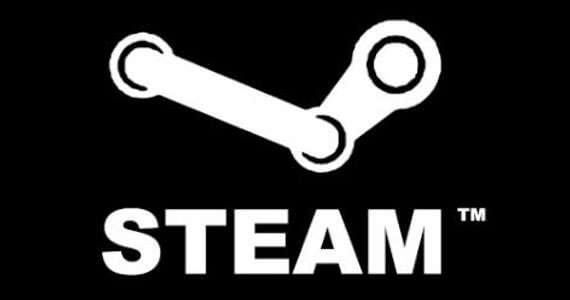Amongst PC gamers, there’s a growing sense of apathy towards Games for Windows (the Microsoft PC gaming service that’s set to shut down later this year) and amongst many recently released laptops there’s a growing list of hardware that’s lacking an optical disc drive. Needless to say, PC gamers have been quick to jump on the digital bullet train and while EA’s Origin service is a fine (if not occasionally criticised) way to get EA games, for titles published by everybody else, there’s Steam and Steam is on the up.
In 2012, Steam hit a record for 5 million concurrent users, in December, crushed that record by hitting 7 million over the holiday, all the while with Steam Machine consoles on the way which aim to continue growing that number.
Steam’s popularity is bolstered by huge waves of daily, weekly and seasonal sales which see price cut games find a home or clutter up many a Steam library as we all make a mad dash to pick up games that we would have never considered or those we've long forgotten about. And then there are the games that are consistently free such as popular MOBA DOTA 2 and the recently released FPS, Ghost Recon: Phantoms. It’s the combination of all of these features that has seen big name publishers, indie developers and every game maker in between flock to the service, even this year already than during all of the previous year.
According to statistics put together by Gamasutra, the first 20 weeks of 2014 have seen over 500 games released on Steam, in comparison to the 480~ games released in 2013 in its entirety. In comparison, 2013 saw around 130 games released onto Steam in the same timeframe. The number of games in 2014 could potentially double in the face of the pre-Christmas rush with more games typically being released on Steam during November than during any other month in the year.
The reason for this, inarguably, is thanks to Valve putting together the Steam Greenlight system in place in 2012. With Steam Greenlight, every developer with a game (or even a well put together concept) can set up a campaign and go about securing Greenlight votes from users who can either give a thumbs up, a thumbs down or a maybe (with room to reconsider). In fact, its simulator parodying hit, Goat Simulator, that made its way onto our PCs through that very system.
To decide which games will make it onto the platform through Steam Greenlight, Valve takes user votes, media interest and comments about the game into consideration, letting a fresh batch of piping hot games onto the store every few weeks. A recent update on May 16th saw 75 games let in (with the update before it at the end of April letting a similar number in through the door) and it’s large figures like this that drive the number of released games up, leading to the stats detailed above.
However, while being able to play more games is rarely a bad thing, it has drawn ire from gamers, critics and even Valve co-founder Gabe Newell himself. Gamers, perhaps, are rightfully miffed by titles like Earth: Year 2066 which made it through Steam Greenlight and was made available via Steam Early Access despite being a broken hodgepodge of ideas (and not a substantially complete work in progress, as Early Access dictates) that actually saw it booted from the store and buyers offered a refund. Newell, meanwhile, would like Steam Greenlight scrapped in favour of a more “open” community led system but it’s unclear how Newell and his team at Valve would like to go about establishing that.
That’s not to say that Steam Greenlight (or the large amount of titles released on Steam so far this year) are a bad thing, as Newell also says that Steam is a “bottleneck” that allows smaller devs to make money in the midst of bigger publishers with bigger marketing budgets. But even with the benefits of hundreds of Steam titles available to us, there are clear downsides to the seeming ease it takes to get onto PC’s biggest gaming platform.
For example, the section of the Steam store’s homepage that serves to promote games now defaults to “Top Sellers” instead of “New Releases” suggesting that Valve can’t keep up with all of the newly released games and nor do they expect gamers to either. So until they find a way to fix this, or to make the process easier, finding high quality games amidst so many vying for our attention will be like finding a needle in a haystack, a la mobile markets, but the future for PC gaming on Steam at least, looks incredibly promising.
Source: Gamasutra

